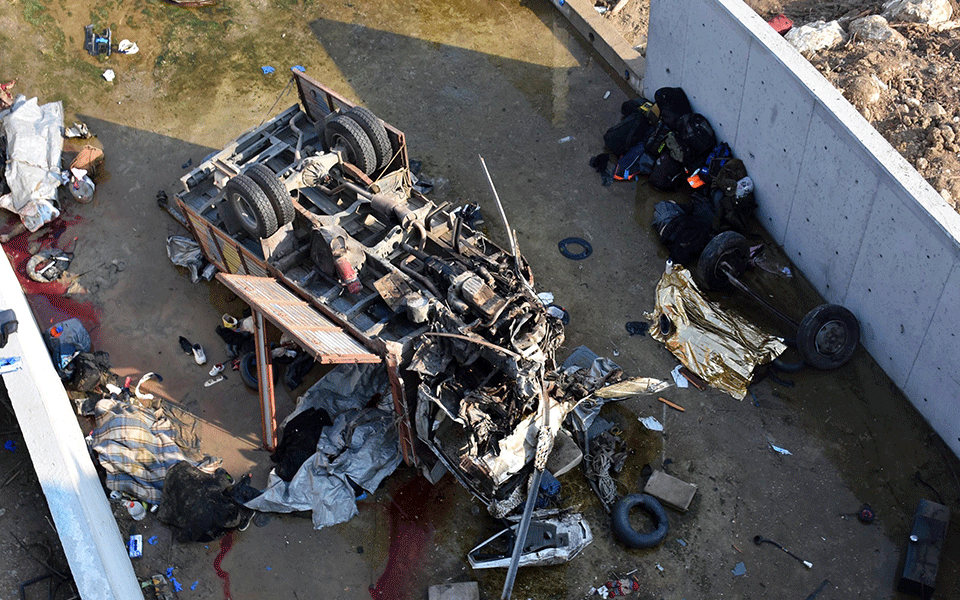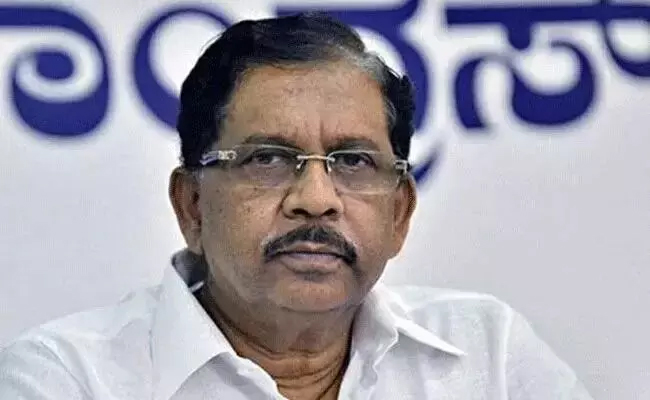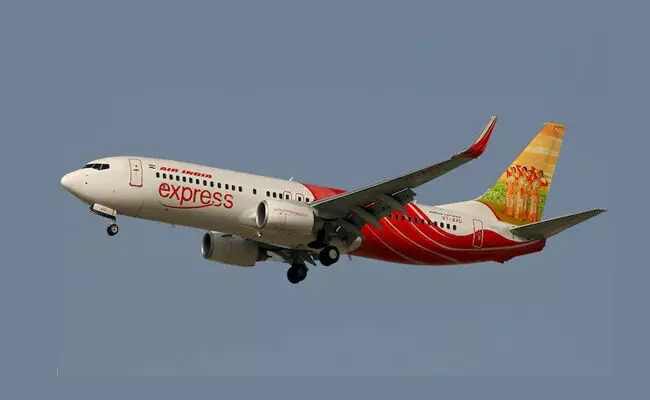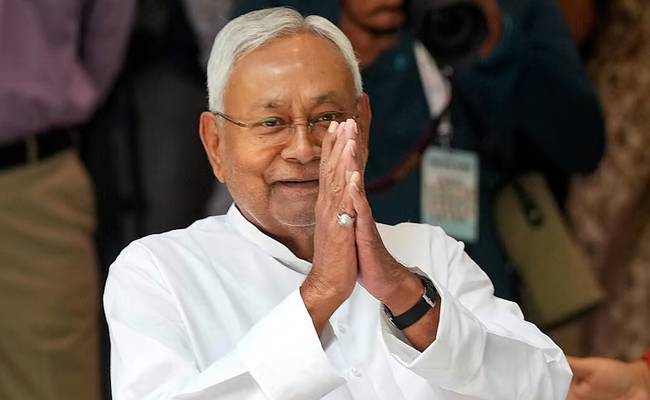Istanbul, Oct 14: Twenty-two people, including children, died on Sunday when a vehicle carrying migrants reportedly heading for EU member Greece plunged off the highway into a waterway in western Turkey.
The vehicle was travelling on a highway near Izmir airport when it flipped over and fell into the channel several metres below, state-run Anadolu news agency said.
The nationality of the migrants was not immediately clear, but 22 people died in the crash and another 13 others were hurt, the agency said, hiking an earlier toll of 19 dead.
Turkish television pictures showed the wreckage of the vehicle upside-down in the river channel, reduced to burned-out metal by the impact of the crash with corpses strewn alongside it.
Rescue workers later used a crane to lift it on to the road, with images showing the vehicle's back end was simply an open container into which the migrants had been crammed.
The DHA news agency said the driver, a 35-year-old Turkish national, had survived, telling police he had swerved to avoid an oncoming white vehicle.
The man had a standard 'B' license to drive a car did not have the required papers to drive a vehicle of that size, it said.
The truck had been hired for four days.
Among the dead were two babies, two children and a pregnant woman, it said.
The driver was expected to be arrested after leaving hospital, Anadolu reported, saying regional prosecutors had opened an investigation.
DHA said the vehicle was headed for the coast of the Izmir region, from where the migrants were to have tried to reach Greece's Samos island.
In the truck with them were several inflatable dinghies.
Samos is just a few kilometres north of Turkey's Dilek peninsula that juts out from the Izmir region.
Turkey is a key transit point for migrants from troubled countries in the Middle East, Asia and Africa seeking a new life in Europe.
A million migrants crossed from Turkey into Greece in 2015, mostly by boats, in a crisis which forced a deal between Ankara and the EU to stem the flow of people.
Numbers have fallen since but people are still undertaking what is a highly perilous journey and the flow has ticked up this year from 2017.
According to UN figures, more than 24,500 migrants have arrived in Greece by sea so far this year, with 118 people losing their lives via this route.
Last week, eight migrants were found drowned off the Karaburun district, also in Izmir province, after their boat capsized.
Twenty-six others are still officially listed as missing after that accident, according to Anadolu.
The trips of migrants towards Greece are often organised by smugglers who demand hundreds and sometimes thousands of dollars per person to sort out the logistics.
After the disaster off Karaburun, four suspected smugglers were arrested following evidence given by an Iraqi who survived, Anadolu said. They had demanded a fee of USD 1,500 from each migrant.
The Hurriyet daily said investigators were now looking into whether the same smuggling network behind the Karaburun disaster was also linked to the migrants caught up in the truck accident.
Eleven people also died on in northern Greece on Saturday when a car thought to be carrying migrants crashed head-on with a truck and burst into flames. (AFP) SMJ
Let the Truth be known. If you read VB and like VB, please be a VB Supporter and Help us deliver the Truth to one and all.
Bengaluru (PTI): Karnataka Home Minister G Parameshwara on Wednesday said that the police have booked a case against those who took out a protest march in the city recently, without permission, condemning the killing of Iranian Supreme Leader Ayatollah Ali Khamenei.
A large number of Shia Muslims gathered in Richmond Town on March 2 to mourn Khamenei's demise and held a protest march.
"A section of the minority community has accepted Khamenei as their religious leader. When he died, naturally they felt the pain and expressed it. But it should have happened within the framework of the law of the land. They had not sought any permission for the procession and no permission was given," Parameshwara said in response to a question.
Speaking to reporters here, he said, "They went ahead with the procession. So, the police have taken action by registering cases against them. In the days ahead, we will not let them hold any processions. As there are court orders not to permit any procession in the city, it can be done at Freedom Park if needed. The government is strictly abiding by the court orders."
Responding to a question about a Congress legislator also being part of the protest march, the home minister merely said, "We will strictly follow the rules."
Khamenei was killed in an airstrike in Tehran on Saturday during a joint Israel-US attack on Iran.





